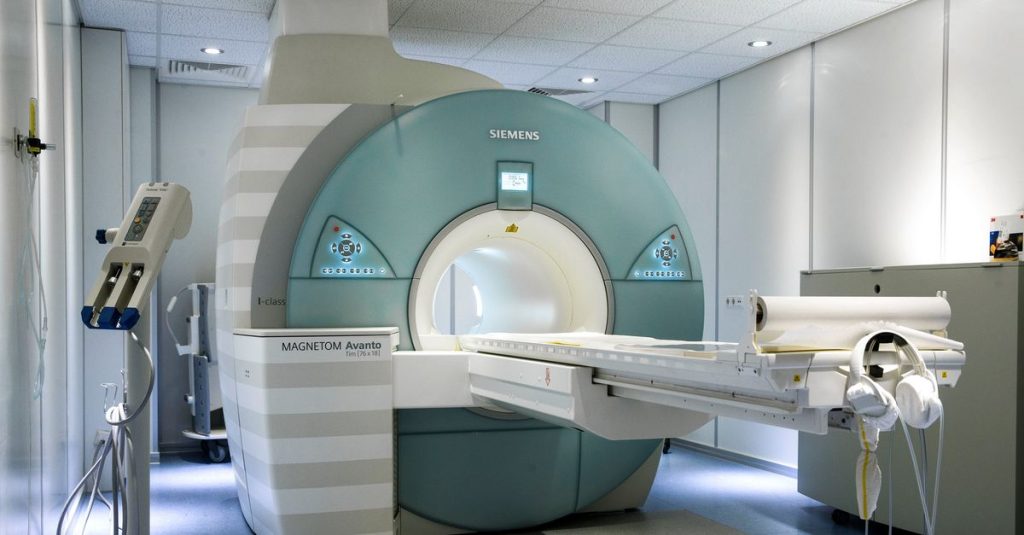Months after infection, changes in areas that play a role in smell and memory can still be seen in the brains of people infected with SARS-CoV-2. This is the case even after a mild infection. The gray matter, which contains brain cells, became on average a little thinner in those areas. Also, the brain as a whole shrank somewhat, and some cognitive abilities were reduced more significantly in people who had been infected, compared to those who were not. British researchers discovered this when they compared brain scans before and after hundreds of participants in a British biobank were infected. Results Monday afternoon In the medical scientific journal nature†
It is the first study to compare the effect of corona infection on the brain with the situation before the infection. This makes it possible to say with more certainty that the changes are associated with infection. Whether the effects on the brain are caused by the virus itself or the immune response caused by the infection is impossible to say based on the research. They can be caused by the fact that the sense of smell in the nose stops after the injury and that the relevant parts of the brain are temporarily no longer aroused.
gray dust
The British compared two brain scans of 785 people in the UK Biobank between 51 and 81 years old. Hundreds of thousands of volunteers have shared their medical data in this database since 2006. Of the examined group, 401 had SARS-CoV-2 infection prior to the second screening. The rest, a similar group of people, were not infected. There was about five months between the time of infection and the second examination.
On average, gray matter, which contains brain cell cell bodies, decreased more in the affected group in areas of the brain responsible for smelling and remembering events. In addition, the researchers saw evidence of nerve damage in the olfactory cortex, which is involved in smell. In the affected group, the brain volume as a whole decreased slightly. In addition, they scored lower on a neuropsychological test that tested information processing speed and mental flexibility.
The differences found were small, ranging from 0.2 to 2 percent shrinkage. By comparison, areas of the brain shrink naturally over the course of life—for example, the hippocampus, which is involved in memory, shrinks 0.2 to 0.3 percent per year in older adults.
malfunctioning immune response
The effects of the infection on the brain were also present after the mild injury the subjects had experienced at home. Differences between those who were infected and those who did not remained when the 15 participants who were hospitalized with severe Covid-19 were excluded.
For comparison, the researchers performed the same analysis on 11 people who developed pneumonia caused by a pathogen other than the coronavirus between the two examinations. In these people, they did not find the brain changes they saw in the Covid group.
“It is surprising that in this study, differences were also found in people who cleared the infection at home,” says neurologist Matthijs Brouwer of Amsterdam UMC. We know that in people with severe Covid-19, there are effects on the brain, possibly due to a malfunctioning immune response in the brain – an indirect effect of the virus. The virus itself was not detected in brain cells.”
Breuer stresses that the appropriateness of these findings in treatment practice is questionable. “It is not clear whether the participants in this study had complaints at the time of the examination. The only information about how the participants functioned in the study comes from cognitive testing performed by the researchers, which does not say much about daily functioning.”
long term effects
“It’s an elegant and solidly designed study,” says David Linden, MD, a psychiatrist and professor of neuroscience at Maastricht University. “After infection with SARS-CoV-2, we see an acceleration of changes in certain areas of the brain that you see with age. You hardly see any difference with younger ages, as the impact of the Corona virus comes on older people over their age.”
The study underscores the importance of monitoring the long-term effects of a mild coronavirus infection, Linden believes. Whether infection also makes older adults more likely to develop dementia at an accelerating rate, the authors suggest, remains to be seen in further research.
Linden says it doesn’t make sense to have a brain scan if you have a mild form of Covid-19. “It’s about the small average effects at the group level, which you don’t find in the individual.”
Read also: Brain fog in lung COVID-19 may be due to overactivity of immune cells

“Total coffee specialist. Hardcore reader. Incurable music scholar. Web guru. Freelance troublemaker. Problem solver. Travel trailblazer.”








More Stories
GALA lacks a chapter on e-health
Weird beer can taste really good.
Planets contain much more water than previously thought